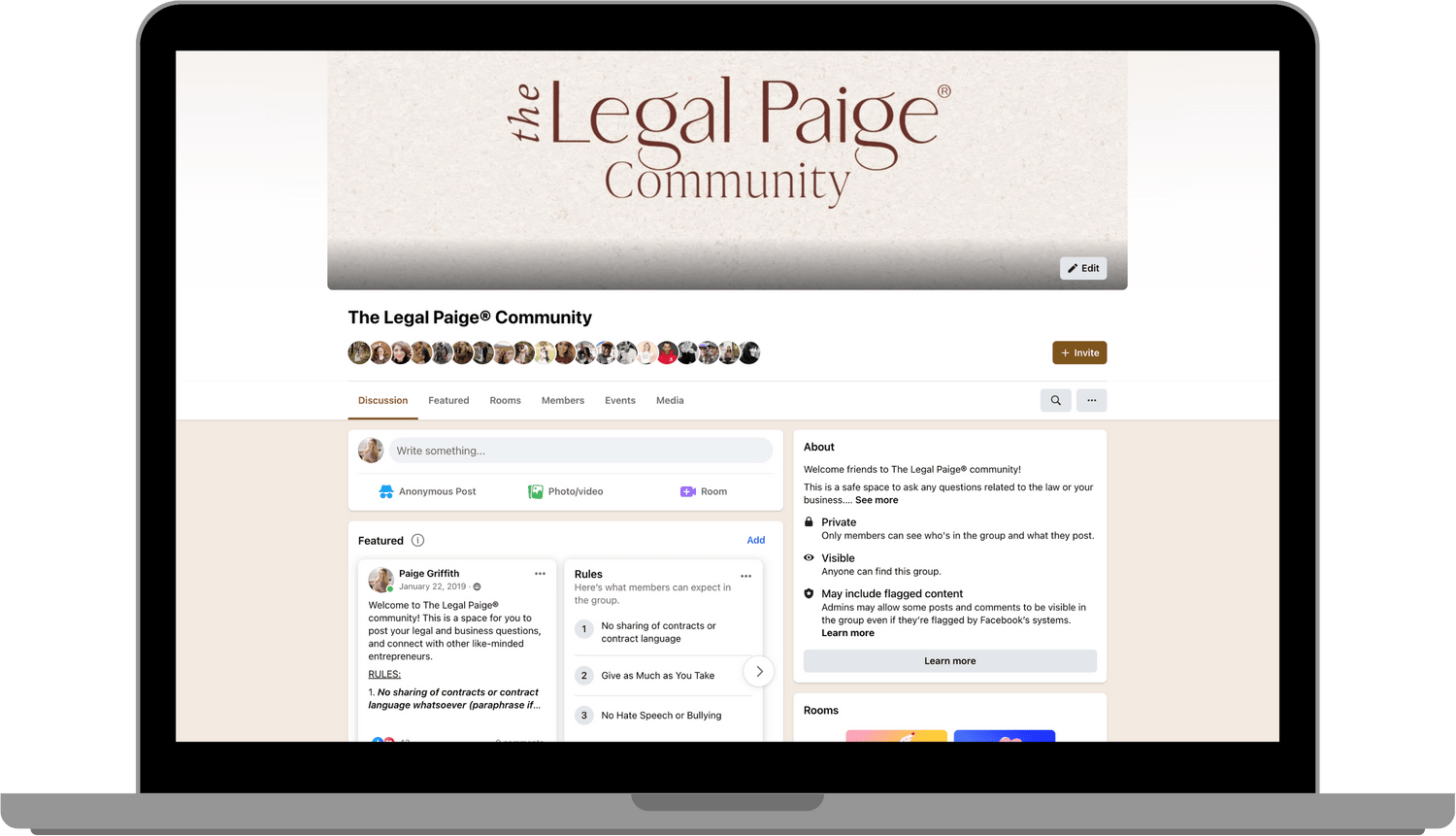
Six Best Practices for Service Providers Navigating the Chargeback Process
One growing challenge for service providers is the surge in chargebacks. Especially concerning are instances of fraudulent chargebacks, where clients wrongfully dispute transactions to secure a refund, despite the completion of services and clearly stated non-refundable terms in contracts.
In this blog post, we'll explore the increasing prevalence of chargebacks, the impact on service providers, and practical strategies from The Legal Paige to effectively combat these challenges.
Understanding the Rise of Chargebacks:
Chargebacks, once a rare occurrence, are now becoming more frequent in the service industry. Not to mention, younger generations are now getting married and utilizing wedding industry service providers and are more willing to commit ‘first-party fraud’ in this respect. ‘First-party fraud’, or friendly fraud as it is sometimes called, occurs when a cardholder makes a transaction but then abuses the chargeback process in an effort to defraud the merchant and score free products or services. Fraudulent chargebacks, in particular, pose a significant threat to service providers who have invested time, effort, and resources into delivering their expertise only to face unwarranted credit card disputes.
The Impact on Service Providers:
For service providers, chargebacks not only result in financial loss but also disrupt the delicate balance of trust between clients and businesses. Fraudulent chargebacks often leave providers frustrated and vulnerable, legally confused about what to do or how to respond, and at the credit card companies' mercy.
Strategies to Combat Chargebacks:
- Clear and Comprehensive Contracts:
- The foundation of chargeback defense lies in a well-drafted service contract. Clearly outline the non-refundable nature of your fees, emphasizing the terms and conditions that clients agree to when engaging your services.
- Thorough Documentation:
- Keep meticulous records of all communications, deliverables, and milestones achieved during the service engagement. Having a comprehensive record can serve as evidence to dispute chargebacks, demonstrating the completion of services. You will likely have to send in a copy of your contract and any other documentation to the credit card company or bank when a chargeback occurs.
- Utilize Payment Processors with Seller Protections:
- Choose payment processors that offer seller protections and actively contest chargebacks on behalf of service providers. Familiarize yourself with the policies and procedures of your chosen payment platform to leverage these protections effectively.
- Only Take Cash, Check, or ACH:
- Some service providers limit payment methods to those less susceptible to chargeback disputes. While electronic payment methods offer a huge level of convenience, accepting only cash, check, or ACH transfers can reduce the likelihood of chargebacks.
- Regular Client Communication:
- Maintain open and transparent communication with clients throughout the service engagement. Address any concerns promptly and document these communications. A well-documented client dialogue can be invaluable when defending against chargebacks.
- Implement Secure Contract Signing:
- Utilize secure contract signing methods to ensure that clients acknowledge and agree to the terms before the commencement of services. Electronic signatures and contract acceptance platforms add an extra layer of validation to your agreement.
For more on these strategies, join me on The Legal Paige Podcast where I dive further into the essentials on how to protect your business from the costly impacts of chargeback fraud. Listen to Episode 166!
How to Fight a Chargeback: The Process of Representment
While chargebacks can be a frustrating aspect of running a service-based business, it's crucial to know that you have the opportunity to fight them through a process called representment. Representment involves submitting a rebuttal letter along with compelling evidence to support your case, and the issuing bank will then review the case and make a decision. However, this process isn't always as straightforward as it seems, as companies often find themselves on the challenging end when consumers dispute transactions.
Steps to Follow:
- Collect Comprehensive Documentation:
- Gather all relevant documents related to the transaction, including the contract, communication records, and proof of service delivery.
- Craft a Clear Rebuttal Letter:
- Create a succinct and compelling rebuttal letter outlining why the chargeback is unjustified. Emphasize contractual terms and provide evidence of services rendered.
- Submit Evidence Promptly:
- Act quickly by submitting your rebuttal letter, contract, and supporting evidence to the payment processor, following their specific representment guidelines.
- Stay Persistent and Proactive:
- Be persistent in following up with the payment processor and promptly provide any additional information they may request.
- Navigating Consumer-Centric Decisions:
- Recognize the bias towards consumers in chargeback disputes. Strengthen your case by highlighting the signed contract, clear communication records, and tangible proof of service delivery.
- Seeking Legal Advice:
- Consider legal guidance if the chargeback dispute becomes protracted or challenging. Legal professionals with expertise in chargeback disputes can provide valuable insights and support.
The Legal Paige's Approach:
As chargebacks become more prevalent, it's crucial for service providers to proactively safeguard their businesses. While a solid contract is your primary defense, adding an extra layer of protection doesn't hurt, especially if you've been dealing with frequent chargeback issues. The Legal Paige offers an a la carte Chargeback Protection Clause designed to provide additional proof that clients authorized transactions and agreed not to file fraudulent chargeback requests. While not strictly necessary with a robust contract, this clause can serve as an added safeguard. Explore The Legal Paige's Chargeback Protection Clause and fortify your business against the challenges of chargebacks in the evolving service industry. Stay informed, stay prepared, and confidently protect the value of your services and expertise.
THIS BLOG POST IS NOT A SUBSTITUTE FOR LEGAL ADVICE. EVERY SITUATION IS DIFFERENT & IS FACT-SPECIFIC. A proper legal analysis is necessary based on your location and contract. Consult an attorney in your home state for advice regarding your contract or specific legal situation.
SEE OUR FULL DISCLAIMER HERE.

Join the Community
Be a part of 8000+ TLP Community Members in this safe space and get real-time answers from Paige and her legal team daily!


Leave a comment